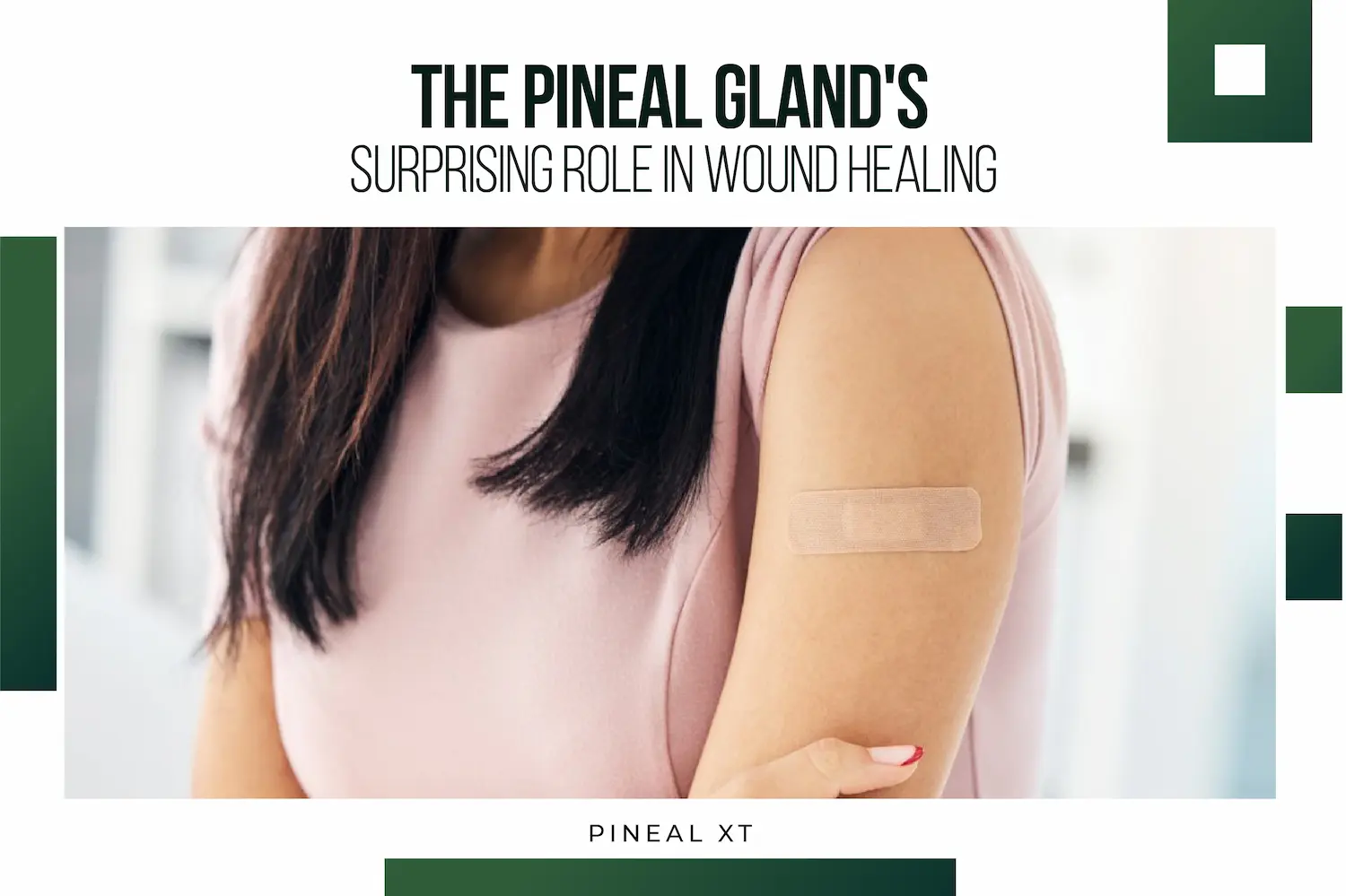The Pineal Gland’s Surprising Role in Wound Healing

Hey there,
This is Eric Thompson here.
I hope you are doing well.
I have news! I’m continuing my journey in Patagonia, this time further south.
Just last weekend…
I was adventuring in the breathtaking Chalten area of Torres del Paine.
If you’ve never been…
Let me try to describe it for you.
Imagine jagged peaks piercing the sky…

Glaciers that glisten under the sun like a sea of diamonds…
And air so fresh it’s like breathing in pure vitality.
It’s an adventurer’s paradise.
However, my exciting trip didn’t go according to plan.
The truth is…
I took a bit of a tumble.
Nothing too serious…
But I ended up with a pretty gnarly wound on my leg.
I just sat there and started treating my wound while admiring the stunning view…
(Always look on the bright side, right?)
I remembered an article I read a few years back.
It was about something most people don’t think twice about:
The pineal gland and its influence on wound healing.
Weird, right?
This inspired me to share this insight with you all.
Let’s dive in.
Melatonin and Wound Healing
First off, let’s talk about melatonin.
As I’ve mentioned in previous newsletters…
This is the hormone that helps regulate our sleep-wake cycle.

But what you might not know is that melatonin is also involved in healing our wounds.
Intriguing, right?
The body is a marvel of interconnected systems…
And the pineal gland, that famous tiny pea-sized gland nestled deep in our brain…
As I always mention…
Plays a key role in synthesizing and secreting melatonin.
Now, here’s where things get interesting.
Studies have shown that melatonin isn’t just produced in the pineal gland.
It’s also made in our gastrointestinal system…
Acting independently of the pineal gland.
This dual-source production got scientists curious about melatonin’s role in wound healing…
Independent of its home base in the brain.
The Comparative Study
To dive deeper…
Researchers conducted a comparative study focusing on the healing of incisions and anastomotic wounds.
They divided rats into five groups…
And subjected all to small intestine anastomosis but varying their treatment…
One was the control group, the second group was given exogenous melatonin…
The third group sham operations, the fourth group pinealectomies…
And the last one was a combination of pinealectomy followed by melatonin treatment.
(Pinealectomy is a surgical procedure that removes the pineal gland, just in case you were wondering)
The findings were quite revealing.
After measuring various healing indicators that are too complex to explain here…
They discovered some noteworthy effects.
Pinealectomy greatly influences wound healing.
It appeared that collagen deposition and epithelization (the formation of new epithelial tissue)…
Increased in incision wounds post-pinealectomy.
In simple words….
This suggested that the pineal gland, or rather its absence….
Can accelerate certain aspects of wound healing.
However…
Only collagen deposition increased at the anastomosis line…
(“What the F does that mean, Eric?”)
It basically indicates a more complex relationship between the pineal gland and wound healing processes.
But here’s a twist:
When the scientists introduced exogenous melatonin…
Both in normal and pinealectomized rats…
Seemed to slow down the healing process…
Which negatively affected collagen synthesis and epithelium proliferation.
This suggests that while our bodies might benefit from the naturally occurring melatonin in healing…
Adding more into the mix doesn’t necessarily mean better results.
The Removal of The Pineal Gland Also Affects Endocrine Functions
The removal of the pineal gland has broader implications beyond just wound healing.
It affects endocrine functions across the board…
In birds and mammals alike…
And has even been linked to increased growth and spread of malignant tumors in rodents.
The pineal gland, it turns out…
It’s more than just a melatonin factory.
It’s a crucial player in our overall health and well-being.
The Takeaway
So, what’s the takeaway from my unexpected trip down memory lane…
And this deep dive into pineal gland research?
Well, for starters…
Our bodies are incredibly complex and wonderfully designed.
The pineal gland, though small…
Has a significant impact on our health.
From regulating our sleep to even influencing how quickly we recover from injuries!
For me, this knowledge underscores the importance of holistic health.
We must understand that everything in our body is connected…
And what we do to one part affects the whole.
It’s also a reminder that more isn’t always better.
Just as adding extra melatonin can hinder rather than help the process of wound healing…
Balance is key in all aspects of our health.

Right now, my leg is healing nicely (thanks in part, I’m sure, to my body’s natural melatonin production)…
Which reminds me of the incredible journey of discovery we’re on.
For me…
Diving into the mysteries of the pineal gland or exploring the wilderness of Torres del Paine…
It’s all part of the same adventure.
There’s always more to learn, more to explore…
And more to be amazed by.
So take care of your body, stay curious…
And never stop exploring.
Both the world around you and the wonders within.
Till next time,
Eric Thompson

